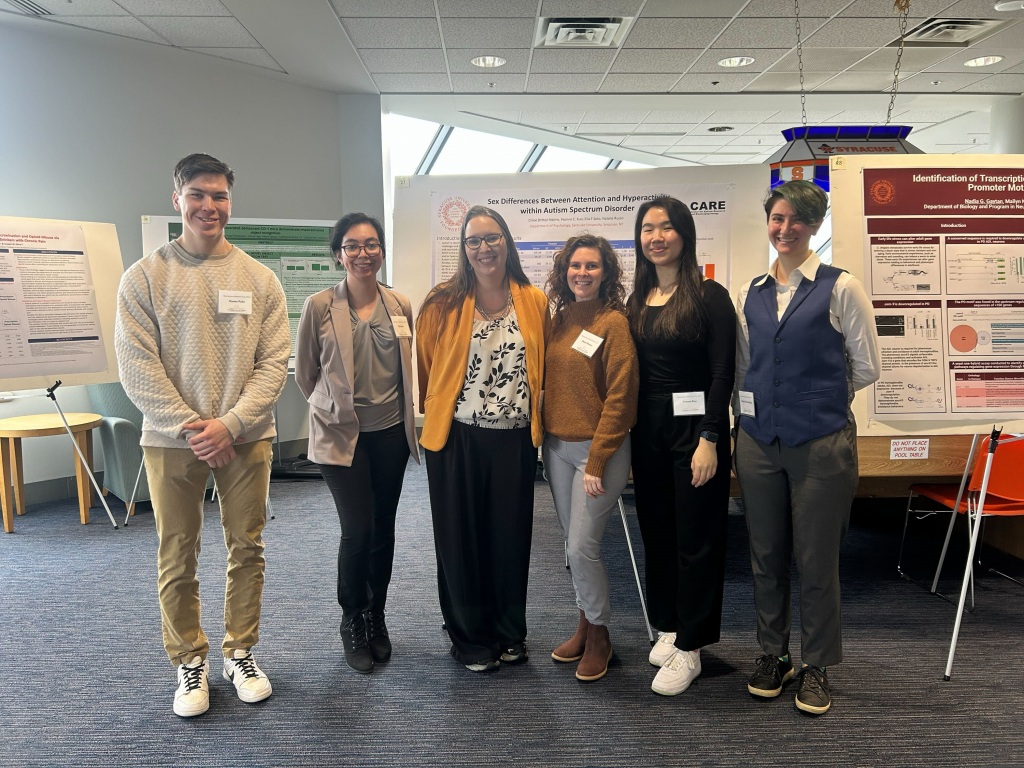
The Center for Autism Research and Electrophysiology (CARE) Lab is dedicated to conducting behavioral and neurophysiological research focused on understanding the manner in which typically developing children, children with developmental disabilities and children on the autism spectrum process and integrate sensory information. In particular, our lab seeks to understand how autistic individuals sense and perceive the world around them and how that is different (and often better) than neurotypical individuals. We aim to uncover the mechanisms that give rise to these advantages and how this relates to autistic features and symptoms.
In our lab, we adopt a strength-based approach to understanding autism, by using Identity-First Language.
Research in the CARE Lab
The CARE Lab offers autism evaluations for individuals interested in participating in our research. If you’re interested, you can Click here to get on our list!
To join our team, check out our Get Involved page!
What happens at an evaluation?
Once scheduled, families will come to the CARE Lab at Syracuse University. An evaluation consists of the gold standard diagnostic tool for autism spectrum disorders, the Autism Diagnostic Observation Schedule (ADOS-2), as well as a measure of cognitive ability, receptive language, adaptive behavior and sensory features. After the evaluation appointment, the CARE Lab sends a full report of the assessments and diagnostic impressions. Lastly, families are given the option of scheduling a feedback session with Dr. Russo and her graduate students to discuss the results of the assessment and ask any questions.
What do we Study?
Autism Spectrum Disorder (ASD) is a neurodevelopmental disorder commonly associated with deficits in social communication, restricted interests and repetitive sensory behaviours. Our lab takes a strength-based approach to studying ASD, such that autistic individuals are not deficit but different in the perceptual and cognitive processes they apply to interact with/make sense of the world.
Electroencephalography (EEG) is a neurophysiological measure of electrical activity in the brain. EEG non-invasive and painless. To collect EEG data, small electrodes are placed on the surface of the scalp. This EEG data can be time-locked to a specific stimulus and averaged across many trials. In this way, EEG data can reflect the brain’s different cognitive mechanisms such as semantic processing or auditory discrimination.
Psychophysics is the branch of psychology that examines how physical changes in stimuli, such as intensity or duration, affect behavioral and neural responses. Our experiments use finely controlled auditory and auditory stimuli to assess how information from these sensory modalities are processed and integrated over time.
For more information on our research, check out our research page!